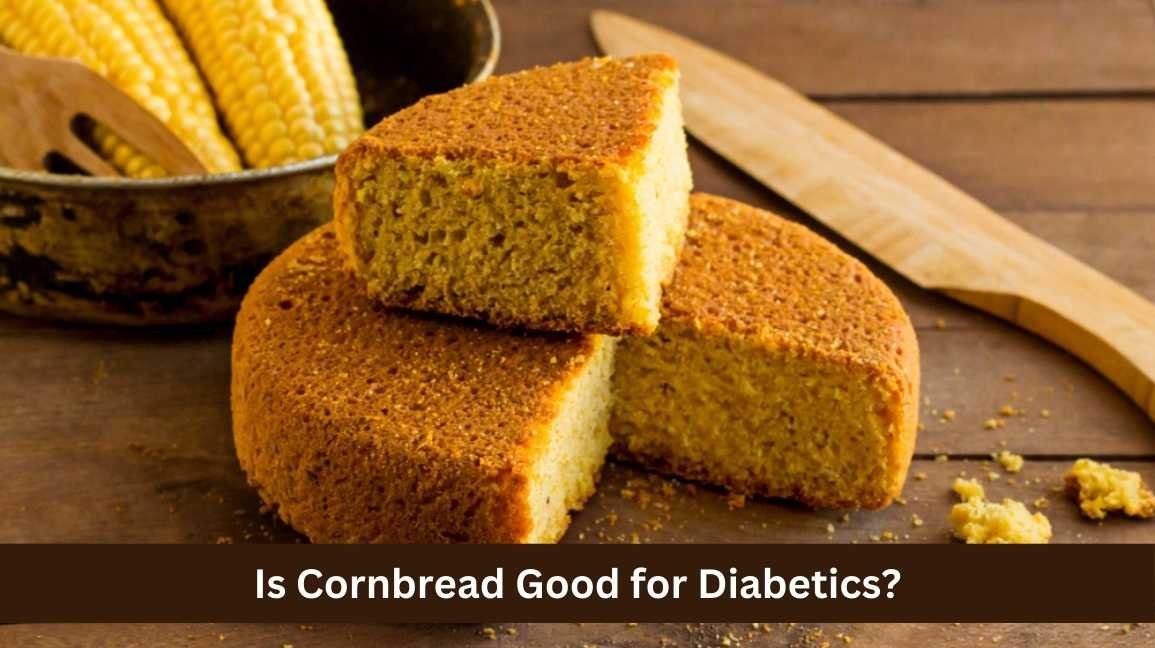Can cornbread fit into a diabetic-friendly diet? Discover its nutritional impact on blood sugar levels!
Cornbread is a popular food that has been around for centuries. It is a type of quick bread made from cornmeal, flour, milk, and eggs. Cornbread can be found in various forms such as muffins, loaves, or even pancakes.
Many people wonder if cornbread is good for diabetics. In this article, we will explore the nutritional value of cornbread and its effects on blood sugar levels in people with diabetes.
Nutritional Composition of Cornbread
Before we discuss how cornbread affects blood sugar levels, let’s first take a look at its nutritional composition. One serving of traditional cornbread (one slice or 60g) contains approximately:
- Calories: 198
- Carbohydrates: 32g
- Fiber: 2g
- Protein: 5g
- Fat: 5g
- Cholesterol: 34mg
- Sodium: 245mg
From this breakdown, we can see that cornbread is relatively high in carbohydrates and calories. It also contains a moderate amount of fat and protein.
Is Cornbread Safe for Diabetics?
Now that we know the nutritional value of cornbread, let’s determine if it is safe for diabetics to consume.
The short answer is yes, cornbread can be included in a diabetic-friendly diet. However, like with any food, it’s important to consume it in moderation.
Since cornbread is high in carbohydrates, it can cause a rise in blood sugar levels. Therefore, it is essential to monitor portion sizes and include it as part of a well-balanced meal.
It is also worth noting that not all cornbread recipes are the same. Some may contain additional ingredients such as sugar or honey, which can further increase their carbohydrate content.
It is important to read labels and choose a recipe with lower added sugars to minimize the impact on blood sugar levels.
Also Read: Is Pho Suitable for Diabetics?
Risks of Cornbread for People with Diabetes
While cornbread can be part of a diabetic-friendly diet, there are certain risks to consider:
1. High Glycemic Index: Cornbread can have a high glycemic index, which means it can cause a rapid spike in blood sugar levels.
2. Portion Control: Overconsumption can lead to excessive carbohydrate intake, making it crucial to monitor portion sizes.
3. Added Sugars: Many recipes contain added sugars or sweeteners which can significantly increase the carbohydrate content and affect blood sugar control.
4. Process Variability: Store-bought versions often have preservatives and added ingredients that can vary widely in their nutritional content.
5. Individual Responses: Blood sugar responses to cornbread can differ among individuals; some might experience more significant spikes than others.
Tips for Making Diabetes-Friendly Cornbread
To enjoy cornbread while managing blood sugar levels, consider the following tips:
1. Use Whole Grain Cornmeal: Opt for whole-grain cornmeal instead of refined varieties to increase fiber content and lower the glycemic index.
2. Limit Added Sugars: Reduce or eliminate sugar in the recipe; consider using sugar substitutes if sweetness is desired.
3. Add Nutrient-Dense Ingredients: Incorporate ingredients like chopped vegetables or seeds to boost nutritional value without significantly increasing carbohydrates.
4. Control Portions: Serve smaller portions of cornbread alongside a balanced meal rich in protein and healthy fats to help stabilize blood sugar levels.
5. Monitor Ingredients: Choose or create recipes with minimal processed ingredients, and avoid those with high amounts of added sugars or unhealthy fats.
6. Experiment with Nut Flours: Substituting a portion of the cornmeal with almond or coconut flour can enhance the nutritional profile and reduce the carbohydrate content.
In Conclusion
While cornbread can fit into a diabetic-friendly diet, it is crucial to consider portion sizes and choose recipes with minimal added sugars. Opt for whole-grain varieties and experiment with nutrient-dense ingredients to boost the nutritional value of this beloved comfort food.
As always, consult with a healthcare professional for individualized dietary recommendations and blood sugar management strategies. With mindful consumption and smart ingredient choices, cornbread can be a tasty addition to a balanced diabetic-friendly diet.
FAQs
Does cornbread have a high glycemic index?
Yes, cornbread can have a high glycemic index. Choosing whole-grain varieties and incorporating nutrient-dense ingredients can help lower its glycemic impact.
Can I substitute sugar in my cornbread recipe with sugar substitutes?
Yes, you can use sugar substitutes like stevia, monk fruit, or erythritol to reduce the carbohydrate content in your cornbread.
Is whole-grain cornmeal better than refined cornmeal for diabetics?
Yes, whole-grain cornmeal is a better option as it contains more fiber and has a lower glycemic index compared to refined cornmeal.
Are there any healthy alternatives to traditional cornmeal for making diabetes-friendly cornbread?
Yes, you can experiment with nut flours such as almond or coconut flour to increase the nutritional value and reduce the carbohydrate content of your cornbread.
Useful Resources
WHO- Diabetes
Mayo Clinic- Diabetes diet
Disclaimer
This article is provided for informational purposes only and should not be regarded as a replacement for professional medical advice, diagnosis, or treatment. Always seek the guidance of a qualified healthcare provider with any questions you may have about a medical condition. Do not ignore or delay seeking professional advice because of something you have read here. While we aim to ensure the information provided is accurate and up-to-date, we make no guarantees regarding its completeness, accuracy, reliability, or suitability for any purpose. You are responsible for how you use this information, and you assume all risks associated with it. We are not responsible for any outcomes resulting from the use of this content.
READ MORE ARTICLES
